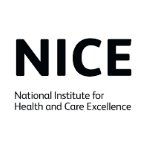NICE has recommended that:
- Impacted wisdom teeth that are free from disease (healthy) should not be operated on. There are two reasons for this:
- There is no reliable research to suggest that this practice benefits patients
- Patients who do have healthy wisdom teeth removed are being exposed to the risks of surgery. These can include, nerve damage, damage to other teeth, infection, bleeding, and, rarely, death. Also, after surgery to remove wisdom teeth, patients may have swelling, pain and be unable to open their mouth fully.
- Patients who have impacted wisdom teeth that are not causing problems should visit their dentist for their usual check-ups.
- Only patients who have diseased wisdom teeth, or other problems with their mouth, should have their wisdom teeth removed. Your dentist or oral surgeon will be aware of the sort of disease or condition which would require you to have surgery. Examples include untreatable tooth decay, abscesses, cysts or tumours, disease of the tissues around the tooth or where the tooth is in the way of other surgery.

